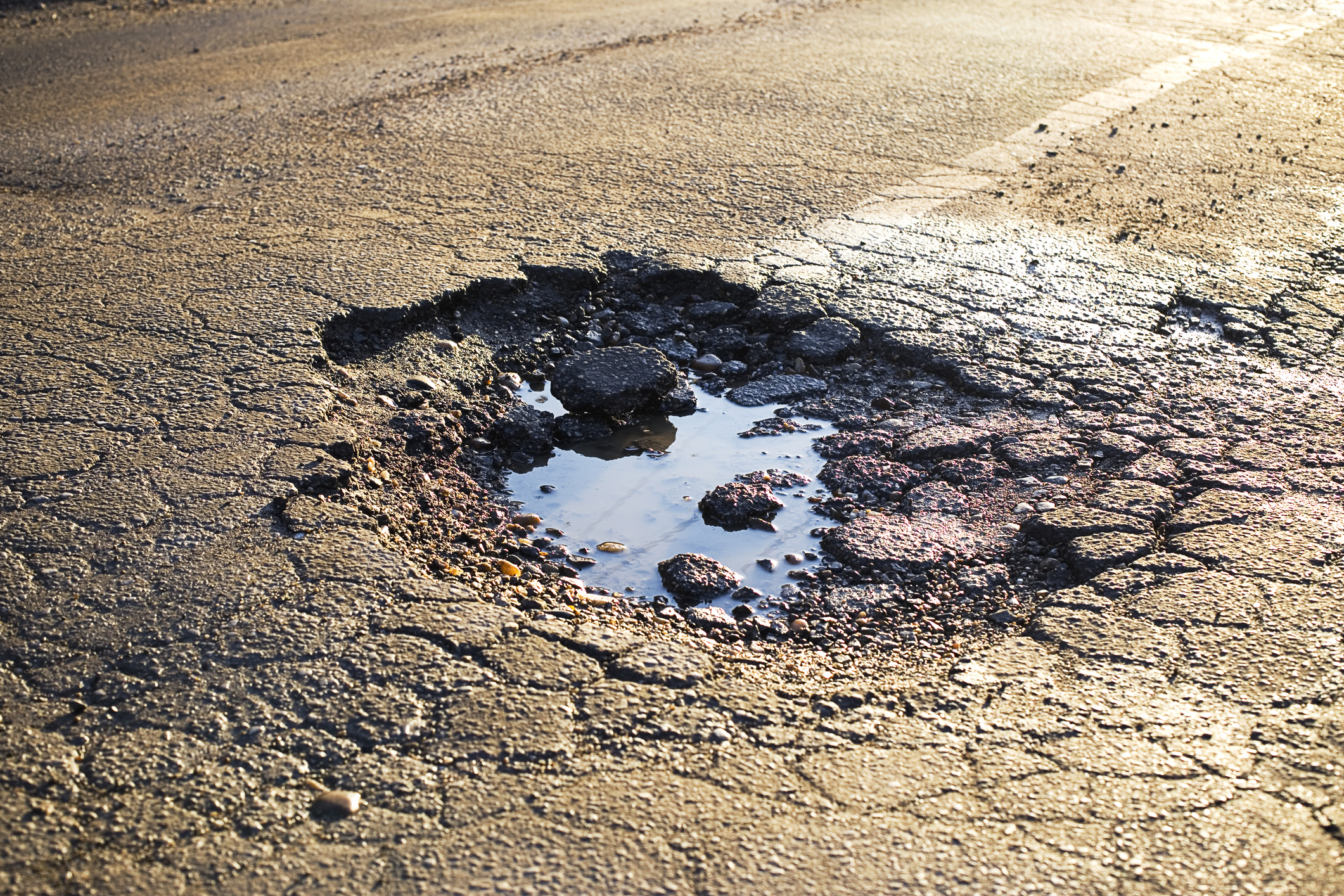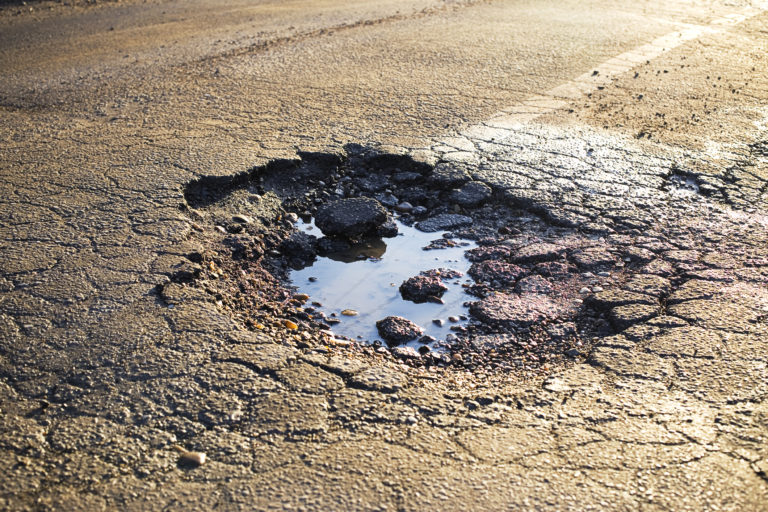
There are more than 4,500 potholes in just two suburbs of Ekurhuleni – Spartan and Edenvale – says Mike Waters from the Democratic Alliance (DA).
If that situation is the same in the rest of the metro, there could be as many as 45,000 to 50,000 road cavities in need of repair.
But nobody, least of all the municipality, knows how many there are. But they are set to become a key element in the political scrapping ahead of the upcoming local government elections.
ALSO READ: Power to people against potholes
“I stopped counting potholes in my ward at around 1,700,” says DA ward councillor Simon Lapping, whose constituency includes Spartan through to Bartlett in Boksburg.
“It is shocking. A safety hazard and who will invest in a key industrial area like Spartan when the infrastructure is crumbling?”
Lapping adds that the council claims there is no money to fulfil all its obligations to ratepayers.
But, chair of the Ekurhuleni oversight committee on infrastructure Dino Petersen disagrees and accuses the DA of political grandstanding.
“Whenever I report an issue to the operations executive in the city, something gets done about it. There is a service delivery contract between the city and its residents and I believe it is being fulfilled.”
The sole elected public representative of the Patriotic Alliance in Ekurhuleni and a coalition partner with the ANC, Petersen reckons some councillors deliberately do not report or highlight issues to create a crisis and a veneer of nondelivery by the coalition-led council, where the DA is in opposition.
READ MORE: Potholes a consequence of Joburg’s deep-lying woes
He notes that revenue collection has suffered due to the pandemic and the associated job losses, which have left many residents unable to pay for services.
But Waters said: “The ANCled coalition has only allocated a measly 8% of the money needed to resurface and rehabilitate our crumbling road network.
“The allocation of a mere R248 million towards this purpose in the 2020-21 budget will only rehabilitate 106km of the road network, or 4.5% of all roads that need urgent attention.
At this rate, it would take the city 22 years to attend to the backlog.”
Waters reckons the backlog plus real-time ageing will create a ballooning problem that will become increasingly difficult to solve.
Dodging potholes, ditches and dongas on tarred roads has, he says, made getting to and from work “an extreme sport”.
He adds that in 2017, no roads were classified as very poor compared to 20.06% in 2020.
ALSO READ: Fed up Roodepoort residents mend their own potholes
“Furthermore, 2% were classified as poor in 2017 compared to 9.98% in 2020. Another 12% were classified as fair in 2017 compared to 37.27% in 2020 and 40% of roads were classified as good in 2017 compared to 12,97% in 2020 while 46% were classified as very good in 2017 compared to just 19.54% in 2020.
“What is shocking is that in three years, the percentage of roads classified as very good and good has decreased from 86% to 32.51%, while roads classified as very poor and poor have increased from 2% to 30.04%.”
Petersen believes the budget for roads and infrastructure should be increased and says he will use his influence to achieve this.
– news@citizen.co.za

